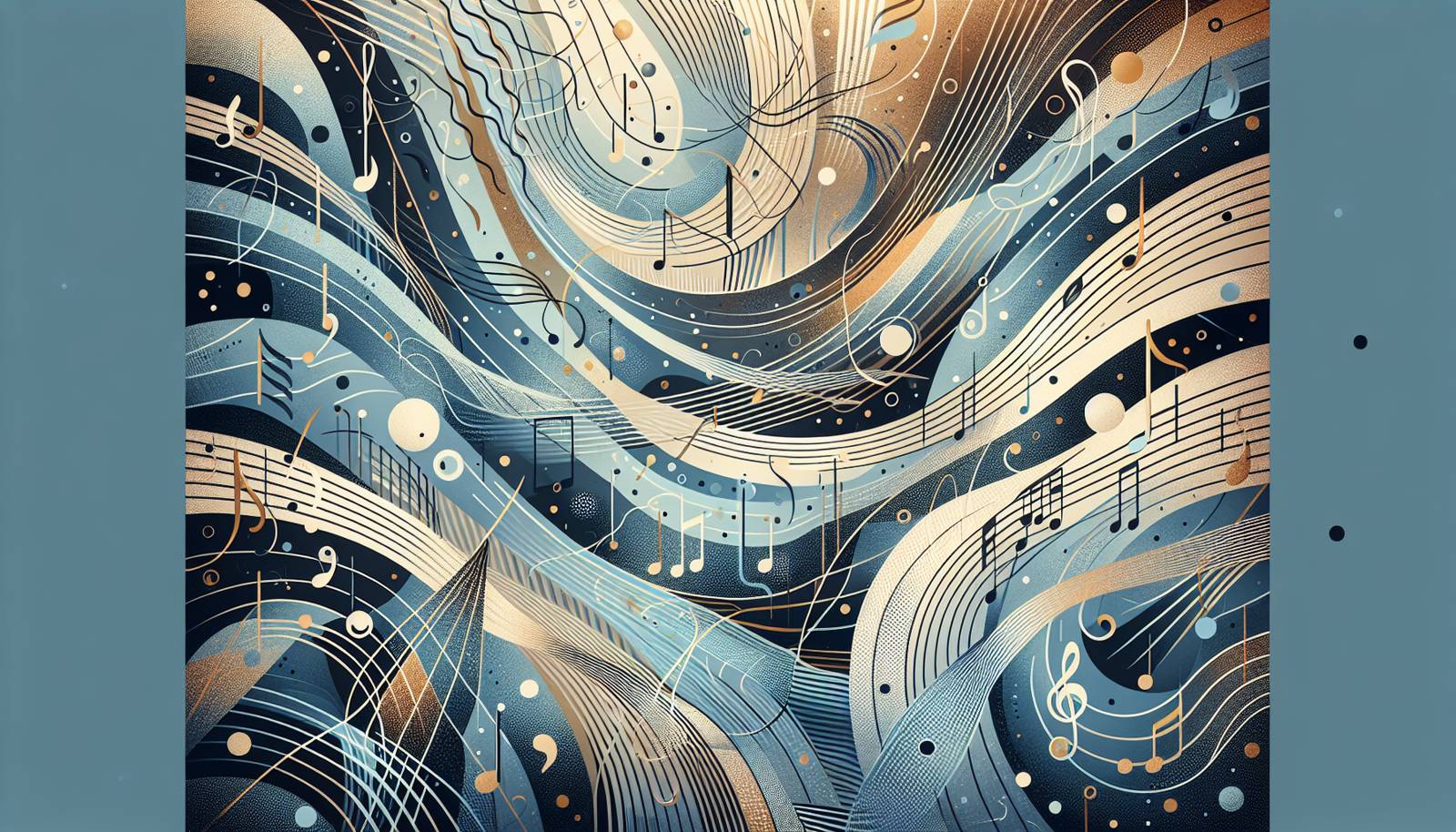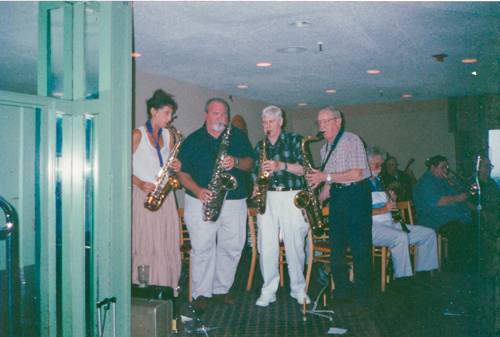
FAQ About The Role of Jazz Clubs in Accidental Jam Sessions

What is an accidental jam session?
An accidental jam session typically refers to an impromptu musical performance that happens spontaneously, without prior planning. In the context of jazz clubs, these sessions often occur when musicians who are either performing at the club or visiting it happen to collaborate on stage, leading to unexpected and creative musical interactions.

How do jazz clubs encourage accidental jam sessions?
Jazz clubs encourage accidental jam sessions by creating an open and welcoming environment where musicians are invited to participate. Many clubs have an open stage policy or dedicated jam nights, which invites musicians from the audience to join in. The informal and collaborative nature of jazz music itself also fosters these spontaneous interactions.

Why are jam sessions important for jazz musicians?
Jam sessions are crucial for jazz musicians as they provide a platform for improvisation and creative expression. They allow musicians to experiment with new ideas, learn from each other, and develop their skills in a live setting. This collaborative experience is essential for the evolution of jazz music.

Can anyone join a jazz club jam session?
Many jazz clubs have open jam sessions where any musician is welcome to join. However, it might depend on the club's policy or the nature of the event. Musicians are generally expected to have a certain level of proficiency in their instrument and understanding of jazz standards to participate effectively.

What role do jazz clubs play in the evolution of jazz music?
Jazz clubs play a pivotal role in the evolution of jazz by providing a space where musicians can collaborate, experiment, and innovate. These venues often serve as the birthplace for new styles and ideas within jazz, as musicians from diverse backgrounds come together and blend their unique influences.

Are there famous jazz clubs known for their jam sessions?
Yes, several jazz clubs are renowned for their iconic jam sessions. Historically, venues such as Birdland in New York City, The Blue Note, and The Village Vanguard have been celebrated for their vibrant jam sessions. These clubs have hosted legendary musicians contributing significantly to jazz history.

What makes a jazz club different from other music venues?
Jazz clubs are unique due to their focus on a specific genre known for its improvisational nature. Unlike other music venues that might have a fixed setlist, jazz clubs encourage free-form musical expression and collaboration, often leading to unexpected and creative performances.

Do jazz clubs typically schedule jam sessions, or are they purely spontaneous?
While some jam sessions occur spontaneously, many jazz clubs schedule regular jam sessions on specific nights. These scheduled sessions are open for musicians to join and participate. However, unplanned jam sessions can still happen at any time, adding an element of surprise to the night's performance.

How has technology impacted jam sessions in jazz clubs?
Technology has enhanced the way jam sessions are shared and experienced. Live streaming and recording capabilities allow performances to reach a wider audience beyond the club walls. Musicians can also use technology to innovate sounds and collaborate across distances, thus expanding the possibilities within jam sessions.

What is the etiquette for joining a jam session at a jazz club?
Jam session etiquette typically involves respecting the musicians already performing, waiting for an invitation to join, and being prepared with your instrument and skills. It's important to be familiar with jazz standards and to follow any guidelines set by the hosting venue or musicians.

Why do some musicians prefer accidental jam sessions over planned performances?
Some musicians prefer accidental jam sessions because they offer a freedom that is often not present in planned performances. The spontaneous nature allows musicians to explore new ideas and interact with other artists in unexpected ways, leading to unique and often more personal musical expressions.

What kinds of collaborations occur during jazz club jam sessions?
During jazz club jam sessions, collaborations can occur between musicians of different instruments, vocalists, and sometimes even dancers. These interactions often blend diverse musical styles and cultural influences, further enriching the collaborative nature of jazz music.

How do accidental jam sessions influence a jazz musician's career?
Accidental jam sessions can significantly influence a jazz musician's career by providing networking opportunities, exposure to new audiences, and chances to hone their improvisational skills. They can also lead to collaborations with established artists and playing in renowned venues, boosting a musician's reputation.

Are there common musical themes explored in jazz club jam sessions?
Jazz club jam sessions often explore themes such as bebop, blues, swing, or even fusion elements, depending on the musicians present. Improvisation around these themes allows for personal expression and innovation, leading to diverse and inventive performances.

What impact do accidental jam sessions have on jazz audiences?
Accidental jam sessions can greatly enhance the audience's experience, as they witness unique and unrepeatable performances. The unpredictable nature of these sessions keeps audiences engaged and adds an element of excitement to the live jazz experience.

What challenges might musicians face in a jazz club jam session?
Musicians might face challenges such as blending with unknown fellow musicians, adjusting to different playing styles, and maintaining the cohesive sound of the session. Additionally, they must be able to think quickly and adapt to spontaneous changes, which is a hallmark of jazz improvisation.

Do jazz clubs have a specific atmosphere that supports jam sessions?
Yes, jazz clubs often cultivate a relaxed atmosphere that encourages creativity and spontaneity. Dim lighting, intimate seating, and a supportive audience contribute to an environment where musicians feel comfortable expressing themselves without inhibition, facilitating impromptu jam sessions.

How do jazz club jam sessions contribute to musician development?
Jazz club jam sessions contribute significantly to musician development by offering a live platform for experimentation and improvisation. They provide opportunities to learn from other musicians, receive immediate feedback from audiences, and practice responding to real-time musical situations, which are all critical for artistic growth.

Are there any famous recordings of jazz club jam sessions?
Yes, there are famous recordings of jazz club jam sessions that capture legendary performances. One example is the recording of "Live at the Village Vanguard," which includes sessions headlined by John Coltrane. Such recordings are historic milestones in jazz, showcasing seminal moments of improvisation and collaboration.

What advice is there for new musicians wanting to join jazz club jam sessions?
New musicians should familiarize themselves with jazz standards, sharpen their improvisational skills, and observe jam sessions before participating. It's also helpful to build a rapport with other musicians, be respectful and patient, and above all, enjoy the creative process that jam sessions offer.
